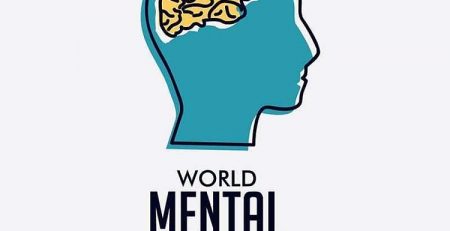Schizophrenia
Thinking, Emotion, and ability to socialize are core characteristics of any human Being. What if something happened and these things get messed up? Exactly the same happens in Schizophrenia.
It’s severe brain disorder affecting thinking ability the most. ‘Schism’ means deviation and ‘phrenia’ means in thinking. Along with hallucinations, delusions and negative symptoms.
Schizophrenia doesn’t mean ‘split personality’ or ‘multiple personalities’ as many people think about it. It is a disorder of thinking, emotion, and behavior.
Don’t think that it’s a rare disorder. One among a hundred people suffer from Schizophrenia (1%). and It’s a chronic condition, requiring life long treatment.
Symptoms
Schizophrenia targets the most crucial period of Life. It usually starts around 18 to 25 yrs old age group.
- Delusions: These are false, firm and unshakeable beliefs that are not based in reality. For example, you’re being followed, harmed or harassed; peoples keep discussing about you, certain gestures or comments are directed at you; you have exceptional ability or fame; another person is madly in love with you; a major catastrophe is about to occur, or your body is not functioning properly.
- Hallucinations: These usually involve hearing or seeing things that don’t exist or others can’t hear or see. Yet for the person with schizophrenia, they have the full force and impact of the normal experience. Hallucinations can be in any of the senses, but hearing voices is the most common hallucinations. Though hallucinations are a very common phenomenon of normal life when it becomes persistent and disturbing we have to consider it as serious.
- Disorganized thinking: Disorganized thinking is inferred from disorganized speech. Meaningful communication may not be possible, often Irrelevant answers are given, sometimes out of context words are used. Very often person start with a relevant answer but end up in the nonrelevant topic (Derailment).
Rarely, speech may include putting together meaningless words that can’t be understood, sometimes known as word salad. Neologism also seen, means creating new words with contextual meaning. - Negative symptoms: This refers to reduced ability or lack of ability or lack of motivation to function normally. For example, a person is not doing activities which are essential for survival. the person appears to lack emotion, such as poor eye contact, blunt facial expressions, mask faces, speaking without emotional intonation or monotone, or not adding hand or head movements that normally provide the emotional emphasis in speech. Also, the person may have a reduced ability to plan or carry out activities, such as decreased talking and neglect of personal hygiene or have a loss of interest in everyday activities, social withdrawal or a lack of ability to experience pleasure.
- Disorganized behaviour: May be seen as talking to self or muttering to self, self laugh, getting aggressive without any apparent reason. Behaving oddly to sociocultural norms of that society.
Causes
The exact causes of schizophrenia are under rigorous investigation. Currently, we know very little about the exact causes. Research suggests a combination of physical, genetic, psychological and environmental factors can make a person more likely to develop the condition.
Some people may be prone to schizophrenia because of genetic makeup, and a stressful or emotional life event might trigger a psychotic episode. However, at present, it’s not known why some people develop symptoms while others don’t.
Following are more researched Facts:
Things that increase the chances of schizophrenia developing include:
1. Genetics (Heredity)
- It tends to run in families, but no single gene is contributory for its development.
- It’s more likely polygenic that means different combinations of genes make people more vulnerable to the condition. However, having these genes doesn’t necessarily mean you’ll develop schizophrenia.
2. Brain development
- Studies of people with schizophrenia have shown there are subtle differences in the structure of their brains.
- But again these are not always present in persons having Schizophrenia. Can occur in people who don’t have a mental illness. But they suggest schizophrenia may partly be a disorder of the brain.
3. Brain Chemicals (Neurotransmitters)
- Neurotransmitters are chemicals that carry messages between brain cells.
- Our majority of current medications work on this principle and proves its importance in manifestations of different symptoms of Schizophrenia.
Dopamine and Serotonin are main neurotransmitters along with GABA and Glutamate.
4. Pregnancy-related Factors
Research has shown people who develop schizophrenia are more likely to have experienced complications before and during their birth, such as:
a low birth weight
premature labour
a lack of oxygen (asphyxia) during birth
delayed milestones
It may be that these things have a subtle effect on brain development.
5. Triggers
Triggers are things that can cause schizophrenia to develop in people who are at risk.
These include:
Stress
The main psychological triggers of schizophrenia are stressful life events, such as:
bereavement
losing employment
Marriage
divorce
the end of a relationship
physical, sexual or emotional abuse
These kinds of experiences, which will cause the onset of illness in an already vulnerable population and not in all.
Psychotropic Substance Abuse (Alcohol, Cannabis)
Drugs don’t directly cause schizophrenia, but studies have shown drug misuse increases the risk of developing schizophrenia or a similar illness.
Certain drugs, particularly cannabis, cocaine, LSD or amphetamines, may trigger symptoms of schizophrenia in people who are susceptible.
Diagnosis
There’s no single test for schizophrenia and the condition is usually diagnosed after assessment by a specialist in mental health i.e. Psychiatrist
As Per International Classification of Diseases 11th revision (ICD 11) Schizophrenia is characterized by disturbances in multiple mental modalities,
including thinking (e.g., delusions, disorganization in the form of thought), perception (e.g., hallucinations), self-experience (e.g., the experience that one’s feelings, impulses, thoughts, or behaviour are under the control of an external force), cognition (e.g., impaired attention, verbal memory, and social cognition), volition (e.g., loss of motivation), affect (e.g., blunted emotional expression), and behaviour (e.g.,behaviour that appears bizarre or purposeless, unpredictable or inappropriate emotional responses that interfere with the organization of behaviour).
Psychomotor disturbances, including catatonia, may be present. Persistent delusions, persistent hallucinations, thought disorder, and experiences of influence, passivity, or control are considered core symptoms. Symptoms must have persisted for at least one month in order for a diagnosis of schizophrenia to be assigned. The symptoms are not a manifestation of another health condition (e.g., a brain tumour) and are not due to the effect of a substance or medication on the central nervous system (e.g., corticosteroids), including withdrawal (e.g., alcohol withdrawal).
These substances not only precipitate illness but also cause a relapse of symptoms in already controlled Schizophrenia.
When To Consult a Psychiatrist ?
- People with schizophrenia often deny that they are having any difficulty.reatment.
- Please remember it, Earlier the Treatment Better the Prognosis.
- Stigma and lack of awareness are major contributing factors towards delay in treatment.
- To have better control over illness we need to get earlier intervention from Psychiatrists.
Treatment
Many People with Schizophrenia may require Lifelong treatment. And this fact adds to many misconceptions about Treatment.
We Psychiatrists mainly deal with two modalities, Psychopharmacology means the use of appropriate medicines and Psychosocial means use of Psychotherapy and Role of family in management.
Prior to starting Medicines, a lab test called a complete blood count (CBC), blood sugar level(BSL), Liver function test(LFT), Electrolytes(Na, K), Kidney function test (KFT) and ECG other blood tests that may help rule out conditions with similar symptoms, and screening for alcohol and drugs. The Psychiatrist may also request imaging studies, such as an MRI or CT scan.
After diagnosis
If you or a friend or relative are diagnosed with schizophrenia, you may feel anxious about what will happen. You may be worried about the stigma attached to the condition, or feel frightened and withdrawn.
It’s important to remember that a diagnosis can be a positive step towards getting good, straightforward information about the illness and the kinds of treatment and services available.



